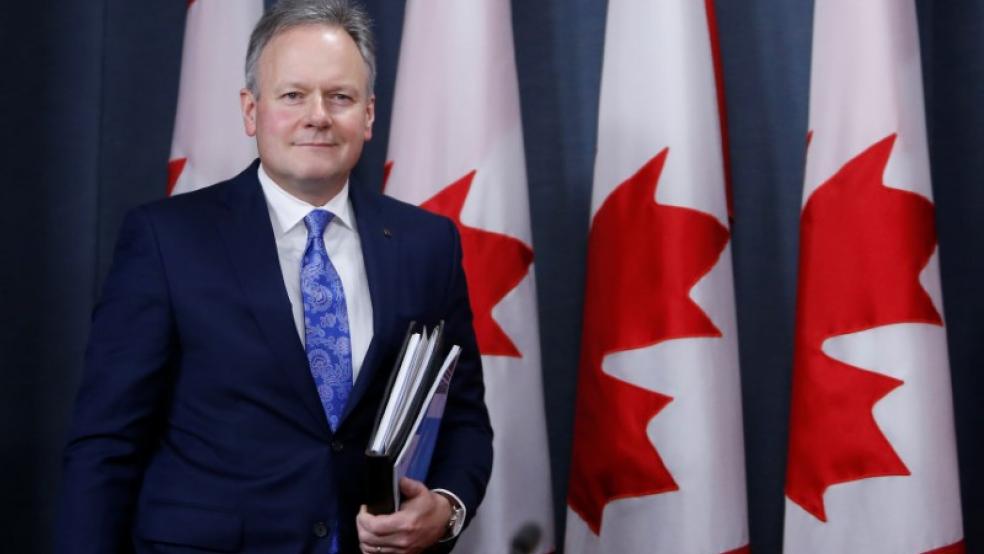WASHINGTON (Reuters) - Assessing the costs and benefits of possible monetary policy actions to address financial stability concerns remains a priority ahead of the renewal of the Bank of Canada's inflation target agreement next year, Governor Stephen Poloz said on Monday.
As part of its research, the bank is gathering empirical evidence about the effects of household debt levels on monetary policy, Poloz said is his last scheduled public appearance before an Oct. 21 interest rate decision. The bank is also researching financial imbalances in the household sector to find the best way to minimize the risk of future crises and is developing models that will be better at quantifying the impact of using monetary policy to combat the build-up of imbalances."We will continue to strive for a better understanding of the interactions between monetary policy and financial stability, and I expect to see a large amount of groundbreaking research that will shed light on various aspects of this relationship," Poloz said in a speech at the annual meeting of the National Association for Business Economics.The bank aims to keep inflation at the midpoint of a 1 percent to 3 percent target range and its target agreement with the federal government is up for a five-year renewal in 2016. Poloz said again on Monday that the bar for change is high.During a question and answer session with the audience, Poloz said that the strengthening of the U.S. economy is "having the expected effects on Canadian exports."A pick up in exports is key to the Bank of Canada's view that the economy will regain momentum after being in a mild recession in the first half of the year. While recent data showed exports dipped in August, the sector saw strong growth over the previous two months.The Bank of Canada has cut interest rates twice this year to stave off the economic blow from cheap oil prices, but some have voiced concern that the cheaper borrowing costs will add more fuel to an already hot housing market. In a speech that largely echoed one he gave on Saturday, Poloz justified the rate cuts as being required by the oil price crash cutting into national income and threatening to drive inflation below target for an unacceptably long time. The central bank is widely expected to stand pat next week. (Reporting by Jason Lang and Howard Schneider, writing by Leah Schnurr; Editing by Meredith Mazzilli)Bank of Canada studying financial stability, policy ties

Chris Wattie



